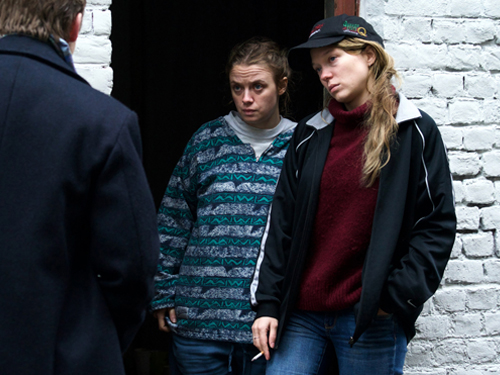
A police chief in northern France tries to solve a case where an old woman was brutally murdered.
“Oh Mercy, however, is something different, and Desplechin clearly sees it that way: in his director’s statement, he says, “Nearly all my films have been romantic. Too much! It’s this “too much” that I desired.” By contrast, “Today I want a film that sticks to reality, in every way. That returns to raw material and which, through the art of the actor, can burn.” Maybe it loses something in translation from the French, coming across awkwardly like one of those manifestos that Lars von Trier used to fire off so liberally. But we can’t doubt Desplechin’s sincerity, especially when he quotes the late French critic Serge Daney, who once said, “Already a film buff from a child, from the playground on, I rejected society. But I think that cinema helped me come to terms with the world.” Oh Mercy is clearly the film where Desplechin explicitly comes to terms with the world, and he does so in a very personal way: the film’s French title is the highly poetic Roubaix, une lumière (Roubaix, a Light), Roubaix being the Northern French town where the director grew up and where he has set a number of films. Written by Desplechin and Léa Mysius (his co-writer on Ismael’s Ghosts and director of 2017’s Ava), Oh Mercy is adapted from a 2008 TV documentary by Mosco Boucault, Roubaix, Commissariat central (Roubaix, Central Precinct), and, as an opening title card points out, the crimes Desplechin narrates are all drawn from reality.”
Jonathan Romney1
- 1Jonathan Romney, “Film of the Week: Oh Mercy!,” Film Comment, 24 May 2019.

